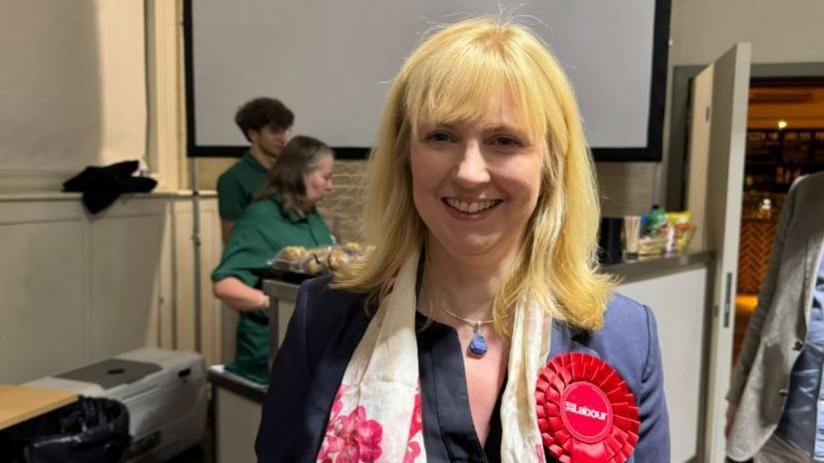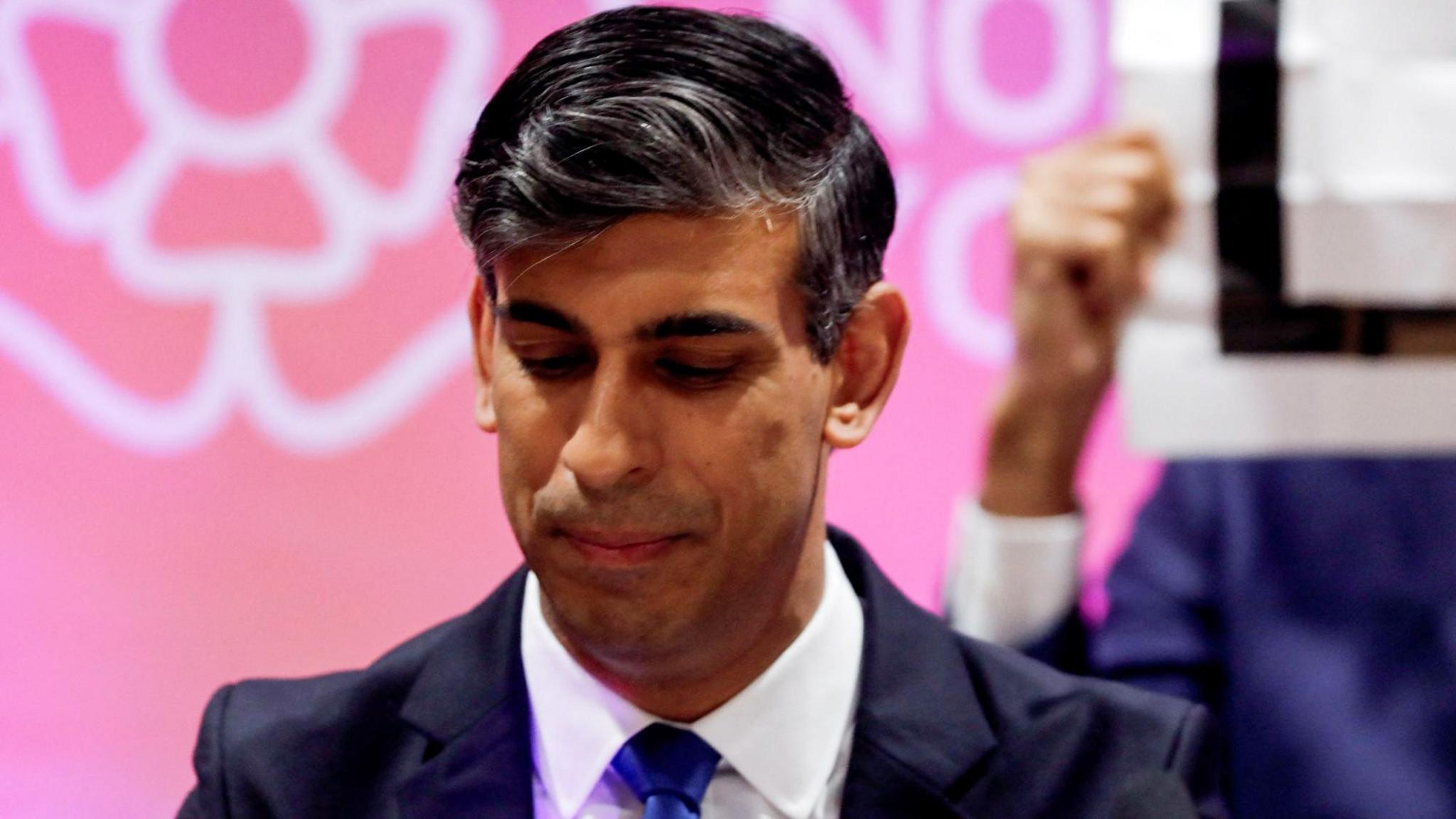Six takeaways from Kent’s general election results
Dover & Deal: Labour's Mike Tapp becomes new MP
- Published
After weeks of canvassing and debating, the people of Kent have voted.
Across 18 constituencies, voters have gone to the polls in the general election, which has seen the Labour Party claim a landslide victory.
Labour made major gains from the Conservative Party across Kent, while the Liberal Democrats celebrated gaining Tunbridge Wells from the Tories.
So what did we learn? Here are six takeaways from the night, with all the results available in our live page here.

Labour's Rosie Duffield held her Canterbury seat with 19,531 votes
1. Labour take Folkestone and Hythe
Labour’s Tony Vaughn has taken the seat of Folkestone and Hythe, ahead of Damian Collins, who had a 21,337 majority in the old constituency in 2019.
The seat had been Conservative since it was created in 1950 and belonged to the former leader of the Conservative Party, Michael Howard.
Mr Vaughn received 15,020 votes, while Mr Collins got 11,291 votes, giving Labour a majority of 3,729.
Bill Wright of Reform UK came third with 10,685 votes.
Mr Vaughn said: "You voted for change and it starts right here."
2. Lib Dems gain Tunbridge Wells from Tories
The Lib Dems have won in Tunbridge Wells, one of their top targets in the election.
Greg Clark held the seat for the Conservatives for nearly 20 years, but announced he was standing down when the election was called.
The seat has been won by Mike Martin for the Lib Dems with a majority of 8,687.
Mr Martin scored 23,661 votes, ahead of Neil Mahapatra from the Conservatives on 14,974.
3. The rise of Reform UK
While Reform UK did not secure a single seat in Kent, they did finish in third place in a number of areas and second in Dover and Deal.
Bill Wright in Folkestone and Hythe came third with 10,685 votes, while Gravesham’s Matthew Fraser Moat and East Thanet’s Paull Webb received more than 8,000 votes each.
Reform UK also came third in Tunbridge Wells, Dartford and Sevenoaks.
4. Labour narrowly gained Dartford
Labour has narrowly gained Dartford from the Conservatives.
Jim Dickson, who received 15,392 votes, has unseated the long-standing MP Gareth Johnson, who got 14,200.
Reform UK's Lee Stranders was third with 9,523.
5. Not all doom and gloom for the Tories
Despite heavy losses across Kent, the Conservatives were able to win in Sevenoaks.
Laura Trott, chief secretary to the treasury, received 18,328 votes - 5,440 votes ahead of the Lib Dems' Richard Streatfield on 12,888 and Reform UK’s James Milmine on 9,341.
Meanwhile, Helen Whately narrowly held on to the Faversham & Mid Kent by 1,469 votes, ahead of Labour's Mel Dawkins
6. Labour gains Dover and Deal
Labour has won in Dover and Deal, with the Conservatives finishing third behind Reform UK.
The seat had been held for the Conservatives by Natalie Elphicke, until she defected to Labour shortly before the election was called. She also announced she would be standing down.
Labour's Mike Tapp got 18,940 votes, with Howard Cox of Reform UK receiving 11,355.
Stephen James of the Conservatives received 10,370.
Follow BBC Kent on Facebook, external, on X, external, and on Instagram, external. Send your story ideas to southeasttoday@bbc.co.uk , external or WhatsApp us on 08081 002250.
Related stories
- Published5 July 2024
